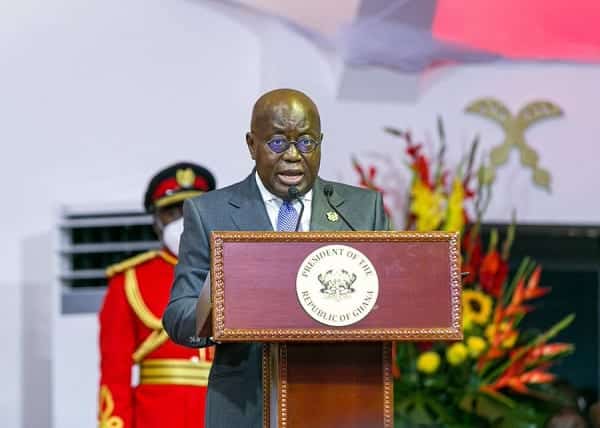Ghana Embarks on $12 Billion Oil Refinery Project Amidst Local Opposition

President Nana Akufo-Addo has officially inaugurated the construction of a massive 300,000 barrel-per-day oil refinery, a move that could significantly reshape Ghana’s economic landscape.
The project, hailed as a potential game-changer for Ghana’s burgeoning oil industry, is expected to position the nation as a central petroleum hub in West Africa.
At the launch ceremony held on Monday in Jomoro, a southwestern city that will host the project, President Akufo-Addo highlighted the refinery’s importance to Ghana’s future.
“The project promises to be a cornerstone of our nation’s development,” he declared, underlining the strategic significance of this investment for the country’s economic growth.
The refinery, which will also include extensive petrochemical plants, marks a bold step for Ghana, a nation that began producing oil only in 2010.
Currently, Ghana produces approximately 132,000 barrels of crude oil daily and 325 million standard cubic feet of natural gas.
The new refinery is set to drastically increase the country’s output, addressing both domestic needs and the broader regional demand.
The first phase of this ambitious project comes with an estimated price tag of $12 billion.
The financing and construction will be handled by a consortium that includes Touchstone Capital Group Holdings, UIC Energy Ghana, China Wuhan Engineering Co., and China Construction Third Engineering Bureau Co.
This consortium aims to elevate Ghana’s status in the global energy market, ensuring the country plays a pivotal role in meeting West Africa’s petroleum needs.
According to the African Refiners and Distributors Association, the region currently consumes around 800,000 barrels of oil per day, with nearly 90% being imported.
The refinery is expected to help Ghana reduce this reliance on imports and meet the regional demand by 2036.
Despite the government’s enthusiasm, the project has not been without its detractors. Bright Simons, vice president of the Accra-based think tank IMANI Africa, has voiced serious concerns about the viability of the refinery.
“The consortium behind the refinery is not primed for investment and the project lacks a bankable business plan,” Simons stated, casting doubt on the project’s long-term success.
He went on to describe the venture as a “speculative attempt to grab a landbank for cheap,” reflecting widespread scepticism about the refinery’s financial foundations and strategic planning.
Adding to the controversy, local residents have expressed strong opposition to the project, particularly regarding the proposed 20,000-acre site designated for the petroleum hub.
Many have protested, demanding that the land allocated for the project be reduced to 5,000 acres.
These protests highlight the growing tension between development ambitions and the concerns of local communities affected by such large-scale projects.
Despite the criticism and protests, the Ghanaian authorities remain resolute in their commitment to the petroleum hub project.
The government is determined to push forward with its plans, which it believes will secure Ghana’s position as a leader in West Africa’s energy sector.
As construction begins, all eyes will be on Jomoro, watching to see if this ambitious project can overcome its challenges and deliver on its promises for the nation.







